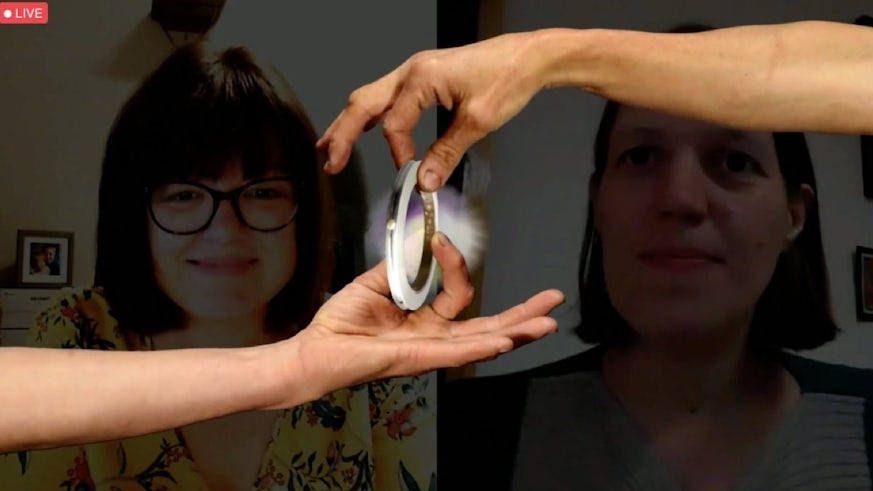Medical statistician wins prestigious award to celebrate women in STEM
16 November 2020

A medical statistician from Cardiff University has been chosen to receive a prestigious award celebrating the achievements of women working in STEM.
Dr Rhian Daniel was among 11 mathematicians and computer scientists to be honoured at the Suffrage Science Awards for Mathematics and Computing earlier this month.
The award is in recognition of their scientific achievements and the work they do to promote maths and computing for the next generation.
Women still make up only 24% of those working in core science, technology, engineering and mathematics occupations in the UK – and just 13% of students studying computer science and 36% studying mathematics courses.
Dr Daniel, a reader in medical statistics from Cardiff University’s School of Medicine, said the award was a “surprise and an honour”.
“It is humbling to join the expanding network of inspirational women who have received Suffrage Science Awards, especially at a time when diversity and inclusion in academia are rightly on our minds more than ever,” she said.
Her work is focused on methods for estimating cause-effect relationships from complex observational data. For example, when a genetic marker is known to be associated with a human disease, she works on methods to disentangle the numerous causal pathways giving rise to this association.
The 11 recipients are chosen by the previous award holders for their scientific achievements and ability to inspire others. This scientific “relay” takes place every two years and aims to create an inspiring network of women connected by their link to the scheme.
Dr Daniel was nominated by fellow medical statistician Professor Ruth Keogh, of the London School of Hygiene and Tropical Medicine.
“Rhian is a brilliant biostatistician and has done fundamental research in this field,” she said.
“She is a supportive and fun colleague who always comes up with a solution to a tricky problem and is a generous supervisor of students and early-career researchers.
“Rhian is also a role model for mothers in academia, and during the pandemic has been combining her research, including scientific work relating to COVID-19, with co-caring for her two small children.”
The awards themselves are hand-crafted items of jewellery created by art students from Central Saint Martins-UAL, who worked with scientists to design pieces inspired by research and by the Suffragette movement:

The Suffrage Science Awards is in its third year and is curated by the MRC London Institute of Medical Sciences.
Professor Dame Amanda Fisher, institute director, said the purpose of the awards was to “celebrate women scientists, their scientific achievements and ability to inspire others”.
More information about the scheme can be found here.
Share this story
The School is a major international centre for teaching and research, and committed to the pursuit of improved human health.



